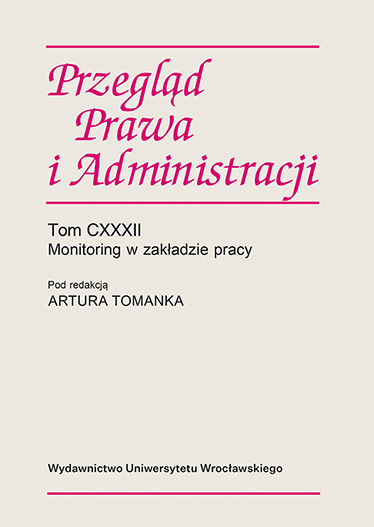

Articles

The study discusses the functioning of video surveillance on the basis of the national legal order, in particular its strong fragmentation, which is one of the main problems related to its functioning. The paper presents a thesis that the fragmented scope of standards is a significant impediment for entities using this protection measure, but more importantly, it does not create a coherent whole, leaving, to some extent, unregulated issues, e.g. of protection of the rights of persons whose images are observed, registered or processed in a way that allows identification of their identity, including persons staying in an open and enclosed space intended for public use, as well as the issue of the obligations of the administrator of monitoring used for private purposes, under which an open public space is subject to monitoring.
Work on the basis of a key analysis of regulations related to the functioning of video surveillance in schools and other educational institutions may give rise to further considerations on the complementarity of the legal order related to the use of video surveillance with the capabilities of these entities, shaped by the rapid development of information technologies.